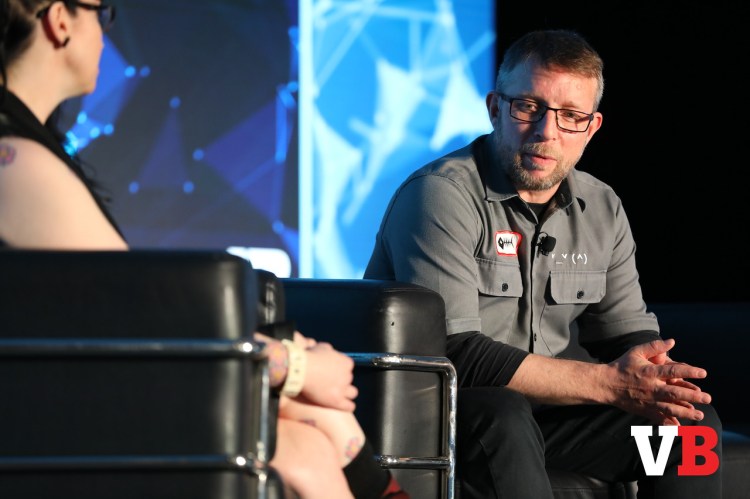For Watch Dogs 2, the truth turned out to be stranger than fiction.
At the GamesBeat Summit today in Berkeley, California. (watch it here), tech journalist Violet Blue and Watch Dogs brand content director Thomas Geffroyd spoke about the eerie similarities between the open-world hacking series and current events. Blue, who’s reported extensively on the underground hacking culture, was a consultant on last year’s Watch Dogs 2.
According to Geffroyd, one of the reasons Ubisoft’s Montreal studio started working on the first Watch Dogs game seven years ago was “because of the phones we have in our pocket and how technology was basically taking everything around us in a new spiral of uncertainty.” The studio wanted the brand to accurately represent some of the real-world anxiety behind hacking and constantly connected devices — as well as show the possible futures that can lead to.
As an example, Blue talked about how in Watch Dogs 2, the police use a special profiling software to target hero Marcus Holloway. During the press tour in October 2016, Blue said predictive policing was just starting to get media coverage.
“It was something that a lot of us, and a lot of us hackers, knew about,” she said. “It’s essentially the buying-and-selling of data through third-party companies to police departments across the United States to profile, follow, and track protesters. And to also do what they call ‘predictive policing’ in different areas, where they would do algorithmic predictions on certain areas in certain neighborhoods to predict where crime would happen.
“Not surprisingly, it was a really racist algorithm. Which is how it ended up playing into the storyline in the game.”
After Watch Dogs 2 came out in December, more real-world examples emerged. Blue pointed out Geofeedia, a social media analytics company who sold data to police that specifically targeted Black Lives Matter protesters.
“Geofeedia was essentially using developer tools to scrape data off of things like Facebook and resell it to police departments. … [Watch Dogs 2] had created and followed that to its natural conclusion of what could possibly go wrong,” said Blue.
Hacking was also a big talking point in the news during and after the fraught U.S. presidential election due to Russia’s alleged interference.
“We’ve put so much energy into trying to be true to the technology and trying to leverage the point of view of hackers, which is very unique … . It has allowed us to extrapolate on technology that was already there, but with which the dark side wasn’t already seen or planned,” said Geffroyd.
Geffroyd credits Watch Dogs’s prescient stories to the hacking community — “who’s a step ahead in terms of technology and risks” — the developers spent a lot of time with while doing research for the game.
“[The similarities were] uncanny, actually,” said Blue. “What was amazing about [Watch Dogs 2] was that it did the thing that great games do in that it told a story to the player that was familiar and resonated with everyone, tapping into a lot of fears and concerns … . But it also told a new story about these concepts that everyone is learning about and dealing with when it comes to data being bought and sold in the background, profiling algorithms, and things like that. And it told them something new about it.”


